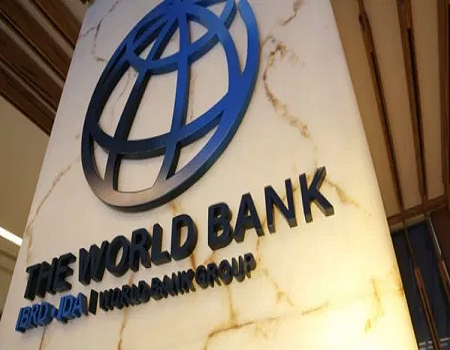World Bank Group headquarters in Washington D.C/ Courtesy.
NAIROBI, Kenya Nov, 11- The World Bank has blacklisted a Kenyan firm, Africa Development Professional Group (ADP), for engaging in fraudulent practices in several multi-million shilling projects for top government agencies across the continent.
The global financier made the decision after an investigation conducted by the World Bank’s corruption-fighting unit established that the Nairobi based firm had engaged in fraudulent practices during a bank-funded project in Somalia dubbed the Somalia Capacity Injection Project.
“The (Somalia) project was designed to strengthen the staffing and institutional capacity of selected line ministries and central agencies to perform core government functions,” the lender noted.
According to the facts of the case, ADP recklessly omitted the disclosure of a conflict-of-interest relationship when submitting a proposal for a contract under the project, which is a fraudulent practice.
A conflict of interest occurs when an individual’s or company’s personal interests – family, friendships, financial, or social factors – could compromise judgment, decisions, or actions when procuring work.
Conflicts of interest are a clash that most often occurs between requirements and interests. Various types of conflicts of interest can occur because of the nature of relationships versus rules of organizations or federal and state laws.
Transparency (being completely open and frank) becomes important when dealing with both actual and potentially perceived conflicts of interest.
Disclosure of a potential conflict of interest does not make it an actual conflict, but may help eliminate the perception. On the other hand, disclosure of an actual conflict of interest does not remove the conflict, but helps get it in the open to be properly addressed.
It’s important to disclose both potentially perceived and actual conflicts of interest to allow others to evaluate the matter and make the decision, rather than keep it to oneself and then create an ethical or legal situation.
The anti-poverty lender said it had banned Africa Development Professional Group (ADP) and its affiliates, together with any organisation they directly or indirectly control for 21 months.
“The debarment makes ADP ineligible to participate in projects and operations financed by institutions of the World Bank Group,” said the World Bank in a statement.
The Nairobi based company provides consultancy and advisory services on management, investments, business solutions, corporate finance and business development to different government entities across the continent.
By this resolution, and under the Mutual Enforcement of Debarment Decisions signed on April 9, 2010, ADP is prohibited from doing business with the Asian Development Bank, the European Bank for Reconstruction and Development, the Inter-American Development, and the African Development Bank (AfDB) for a specific period of 21 months. The pact aligns with the resolution of the five international financial institutions (mostly owned and financed by governments).
“The debarment makes ADP ineligible to participate in projects and operations financed by institutions of the World Bank Group,” said the bank.
“It is part of a settlement agreement under which the company acknowledges responsibility for the underlying sanctionable practices and agrees to meet specified corporate compliance conditions as a condition for release from debarment.”
According to the ADP’s website, some of past clients include Kenya’s Ministry of Lands, Housing and Urban Development, the Gambian Office of the President, the Government of Ghana, the Salaries and Remuneration Commission (Kenya) and the Department for International Development (DfID), Rwanda.
The above projects are, however, not related to the debarment.
As a condition for release from sanction under the terms of the settlement agreement, the company commits to developing and implementing appropriate integrity compliance measures that reflect the principles set out in the World Bank Group Integrity Compliance Guidelines.



















